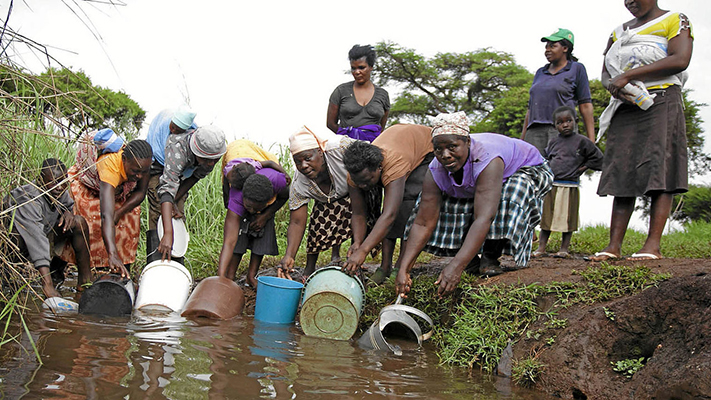Rising cholera cases trigger fears of 2008
By Andrew Kunambura
There is fear that the rising number of cholera cases in Harare could lead to another deadly outbreak such as witnessed in 2008 unless health authorities act swiftly to contain the highly infectious disease which is spreading rapidly in the capital.

This comes as the disease is spreading in the capital with seven new cases reported on Friday alone.
The deadly disease first broke out in the highly populated Stroneridge settlement where two cholera deaths were recorded last week.
This brings the total number of confirmed cholera cases to 16 within just two weeks.
Harare Residents Trust director Precious Shumba said the cholera outbreak was an indictment on the local authorities’ commitment to service delivery.
“Key drivers of cholera such as sewerage, water and sanitation have not been addressed in a long time. State funding of health service delivery remains nonexistent. This leaves local authorities vulnerable as their revenues have declined significantly, due to socioeconomic challenges being experienced in Zimbabwe.
“Harare’s Mbare hostels and Majubeki (Joburg Lines), Highfield’s Geneva, St Mary’s Chitungwiza and other high density suburbs are extremely vulnerable and highly exposed because they are overpopulated, and hygienic practices are highly compromised given their constant water shortages and sewerage bursts which go for long without being repaired.
“It is critical therefore, that the Government funds the health budget of the City of Harare and the Council should seriously prioritise increased allocation of resources for better health services delivery,” said Shumba.
Deputy Director of disease control in the ministry of Health and Child Care, Isaac Phiri, said the epidemic was under control.
“There was one new confirmed cholera case from Belvedere West and seven more in Chitungwiza. Cumulatively, there are 16 cases, eight confirmed, two deaths and the remainder is still suspected cases.
“Ministry officials are on the ground and the situation is under control. Meanwhile, we urge people to exercise hygiene by washing hands with running safe water after using the toilet or before eating or cooking to prevent further spread of cholera and typhoid,” Phiri told the Daily News On Sunday.
This is the fourth time that cholera — which causes severe vomiting and diarrhoea and is lethal, if not treated promptly — has struck Zimbabwe.
In 2008 more than 4000 people died when Zimbabwe was hit by the worst outbreak of cholera in living memory.
The outbreak was blamed on dysfunctional water and sanitation infrastructure.
At the beginning of this year the small team of Chegutu was hit by the infectious disease which left five people dead as Zimbabwe was a victim of the contagion effects of the Zambian outbreak which forced temporary closure of the border linking the two countries I the run up to Christmas last year.
Cholera is an acute diarrhoeal infection caused by ingestion of food or water contaminated with the bacterium vibrio cholerae.
It remains a global threat to public health and an indicator of inequity and lack of social development.
Cholera is an extremely virulent disease that can cause severe acute watery diarrhoea.
It takes between 12 hours and 5 days for a person to show symptoms after ingesting contaminated food or water.
Researchers have estimated that every year, there are roughly 1, 3 million to 4 million cases, and 21 000 to 143 000 deaths worldwide due to cholera.
Previous researches have shown that government’s failure to avail potable water, proper sanitation or safe alternatives has driven the public into using contaminated sources of water and defecating in open spaces.
This has not been helped by the intermittent unclear water supplies, disconnections, refuse collection, clogged sewers and diversion of revenue from rates. Daily News






